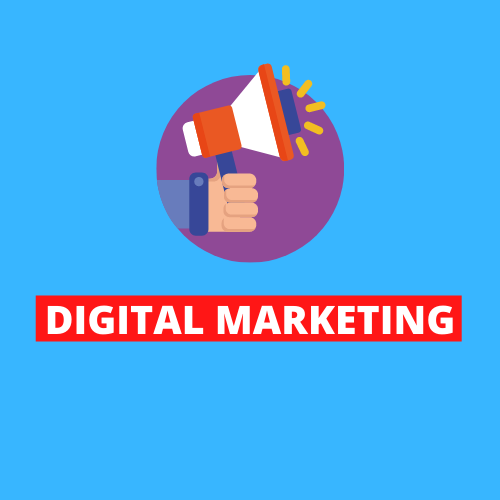
The founder of one of the nation’s first digital-marketing agencies, Ciceron in St. Paul, has a message: Third-party cookies on websites are going away — and with them a fairly standard method companies have used to target their ads.
Ciceron will be helping its clients come up with new strategies as it transitions to new leadership and an updated strategy for itself, said Twin Cities agency veteran Tina White, who in December succeeded Andrew Eklund as CEO, heading a leadership team that is 90% women.
The third-party cookies — digital identifiers advertisers use to track website visitors around the internet and send them targeted ads — have been standard for Google and other big players.
But Google, citing rising consumer privacy concerns, plans to remove the cookies from its Chrome browser, years after competing browsers including Firefox and Safari took action.
But such a move on Chrome, with nearly 63% of the worldwide browser market, could “decimate the advertising industry with no solution in place,” Eklund said.
Now, players like Ciceron will need to work with clients to build a new digital-advertising structure.
Eklund has helped companies with online branding since he founded Ciceron in 1995, a year after Amazon started but several years before Facebook and Google.
Ciceron enjoyed strong growth last year, Eklund said.
Companies needed “a different way of looking at the world … when we’re at the reopening stage” from the pandemic, one that thinks quickly and disruptively, Eklund said.
The agency’s website highlights its digital campaigns for Warner Records’ release of demos from Prince’s vault, the launch of Dua Lipa’s debut album and the Mall of America’s push for more holiday visitors.
The agency hired 10 people last year, bringing its workforce to 33. That’s the largest Ciceron has been. The agency continues hiring as it pursues Eklund’s “fairly aggressive goals” to reach $25 million to $30 million in billings over the next five years or so, White and Eklund said.
With Eklund turning over the reins to White, he can concentrate on how to achieve that growth.
“I think of the agency as continuously being right on top of the customer, how they’re living their lives, what they desire, what they desire from brands, how they’re using technology in their lives to be more efficient, to inform themselves, to entertain themselves,” Eklund said. “I realized that I needed to be focused squarely on the future.”
A priority, White said, will be diversifying Ciceron’s portfolio, now concentrated in health care, music and entertainment, and financial services. All three, Eklund said, face decentralization with the growth of new technologies such the blockchain, a sort of digital ledger, and the advance of the simulated digital worlds of the metaverse.
White was most recently CEO at Minneapolis branding agency Shinebox and previously vice president of operations at BBDO Minneapolis.
“Andrew personally and professionally is the most futurist person I’ve ever worked with, and it’s very exciting,” White said. “I want to realize some of these future thoughts, operationalize them and see how we create a commodity with some of this thinking.”
The metaverse is where White would like to host the innovation lab that Ciceron is launching this year to test new concepts for brands. Eklund sees the lab tapping into his global network of “thinkers and doers and planners” in everything from the blockchain and cryptocurrency to virtual reality, genetics, entrepreneurship and investing.
Testing new ideas has been part of Ciceron from the beginning.
When clients doubted consumers would put credit-card information online, Eklund — in 1996, years ahead of iPods and music-streaming services — opened one of the first e-commerce music sites, IndiSonic. It served independent record labels and musicians, stemming from Eklund’s musical experience as an original member of the Big Wu, a local jam band.
“We can’t do any of this unless we’re able to test it out,” Eklund said. “Whenever clients are like, ‘People will never do that,’ we set up basically an incubator.”
If it fails, he said, you move on to the next thing.
Testing new ways to drive demand is one of Ciceron’s projects with Digital River, said Ted Rogers, chief marketing officer of the global e-commerce enablement company with headquarters in Minnetonka. A business-to-business marketing effort aimed at generating new leads in apparel, fashion and other lifestyle brands has had positive results.
“They’re very strategic in the way they think, forward-looking in the way they think,” Rogers said. “We were very much on the same page as to where we thought there were opportunities. And they helped to figure out how we took the ideas and turned them into action.”
Rather than wait to respond until after third-party cookies disappear, Eklund last year launched a digital leadership consultancy, Atlas by Ciceron, to help brands navigate data and consumer-privacy changes.
Winning brands will be those that have the most first-party customer data, information that consumers share directly with them, Eklund said.
Creating experiences — perhaps app-based, in-store, virtual reality or 3-D — that drive more intimate interaction may get consumers to opt in, Eklund said. Or brands could offer a form of equity — digital tokens, perhaps — that might increase in value as the company becomes more successful. Consumers then could trade these for goods or services, premium packages or access.
“That’s a really revolutionary thought, right?” Eklund said. “Will it happen? I don’t know. But the building blocks are all there or are beginning to be there. An agency like ours, that has always ridden this line between technology innovation and consumer behavior, we just think that there’s a wide open field of opportunity for us that may or may not look anything like advertising.”
Todd Nelson is a freelance writer in Lake Elmo. His e-mail is todd_nelson@mac.com.
from WordPress https://ift.tt/gv81mOx
via IFTTT


0 Commentaires